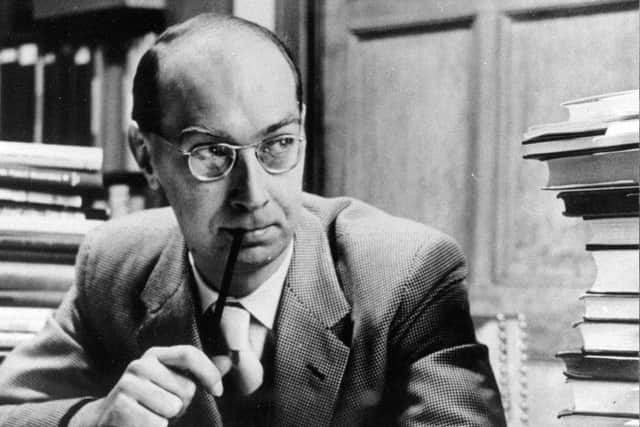Philip Larkin: Five poems everyone should read


Larkin was one of Britain’s best known poets and three decades after his death he remains hugely popular.
He is still one of the most frequently quoted poets and next year the former Hull University librarian will get his own Poets’ Corner memorial at Westminster Abbey, joining the likes of WH Auden, Ted Hughes and TS Eliot. Here are five Larkin poems that everyone should read.
This Be The Verse
Advertisement
Hide AdAdvertisement
Hide AdTaken from his final full poetry collection, High Windows (1974), this has one of the most famous opening lines not just of any Larkin poem, but all 20th Century poetry (although be careful where you read it out loud). What saves it from being grim doggerel is the fact that, like much of Larkin’s best work, it speaks with straightforward clarity.
MCMXIV
The poem has as its title the Roman numerals for 1914 and is a paean to the past, full of poignant images contrasting the world before and after the Great War. The poem is tinged with a sad nostalgia and leaves the reader with a feeling of lingering uncertainty. The power lies in its subtly.
The Whitsun Weddings


This is one of Larkin’s crowning glories and also one of his most optimistic poems. He describes in seemingly effortless detail a train journey and in doing so offers a snapshot of Englishness. The poem, also the title of his acclaimed collection published in 1964, shows off Larkin’s poetic skill in all its dextrous brilliance. Reading it you feel like you are on the journey yourself, the stanzas cleverly mirroring the rhythm of the train.
Talking In Bed
On the face of it this is a straightforward poem. But as with William Blake’s The Sick Rose or William Carlos Williams’s The Red Wheelbarrow, it packs a huge amount into its four short stanzas. In just a handful of sentences Larkin shows our lives as they are, rather than how we would like them to be.
An Arundel Tomb
Advertisement
Hide AdAdvertisement
Hide AdThis meditation on love and loss is one of Larkin’s most tender poems. Standing by the graves of a medieval earl and countess he muses on the ephemeral nature of love.
As with many of Larkin’s poems it takes the form of an internal debate. He wants to believe that love can transcend time and death and concludes that it is “almost true”, before delivering the killer line ...“what will survive of us is love.”